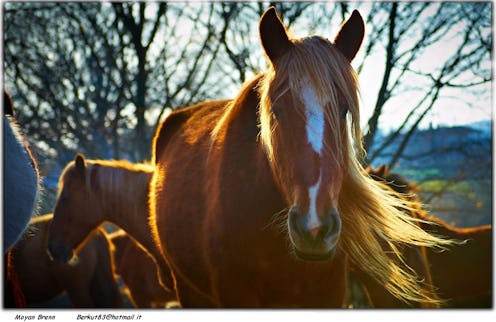Entertainment
@Horse_ebooks Turns Social Media Into Art

Today, in the smallest of articles, The New Yorker revealed everything we know to be a lie. It wasn't that serious, I guess, but it did expose the actual humans behind the Twitter account @Horse_ebooks and the YouTube channel Pronunciation Book. The respective creators, Jacob Bakkila and Thomas Bender, were operating the accounts as a performance art project of sorts, and will be ending both accounts to collaborate on a new choose-your-own-adventure video project called "Bear Sterns Bravo."
The first interesting discussion that this reveal brings up is: Can social media be art? While it may seem like a debatable topic, all signs point to yes. Like photography or painting, social media is merely a medium through which art can be made. And accounts like @Horse_ebooks aren't the first art projects to venture into the world of social media.
Lauren McCarthy acted out her life as a script for a month — a script which could be edited anonymously by anyone on the web. There's internet poet Steve Roggenbuck, who releases poems through jerky, up-close YouTube videos. Then there's social media art microstar Man Bartlett, who frequently puts on performance pieces through social media, live tweeting his 24-hour stay in a Best Buy or in the Whitney Museum, or even repeating requests into a webcam for 24 hours.
With so many already agreeing and participating in the concept that social media can be art, it's hard not to agree. But @Horse_ebooks was radically different; not only for its massive following, but for the fact that the people who followed it didn't even know it was art — most thought it was the accidental genius of a spambot.
So the real question is, are we willing to be lied to for the sake of art? The very fact that the account was run by a human makes a big statement about the anonymous nature of the Internet and the fact that we are more willing to believe something is a machine or a fake on the Web than believe that it's real. We readily believe that most junk emails are spam. Even in ongoing Internet discussions, many will accuse someone with outlying opinions of being a troll, of espousing fake beliefs to get a rise out of people. But @Horse_ebooks shows that not everything on the Internet is fake.
Then again, the reveal that the account was so premeditated cheapens its charm. It's hard to support a social media account as performance art when it feels like one long prank. And the fact that Bakkila and Bender used their accounts to promote their new project seems much more like social media promotion than social media performance art.
Whether for good or bad, @Horse_ebooks has certainly expanded the mainstream perception of art to include social media. But has the project shown us that there are more real people on the Internet than we'd like to believe, or will it just make us more wary of being lied to in a world of anonymity? Let's see what @Horse_ebooks has to say about it:
Exactly.
Image: Moyan Brenn/Flickr